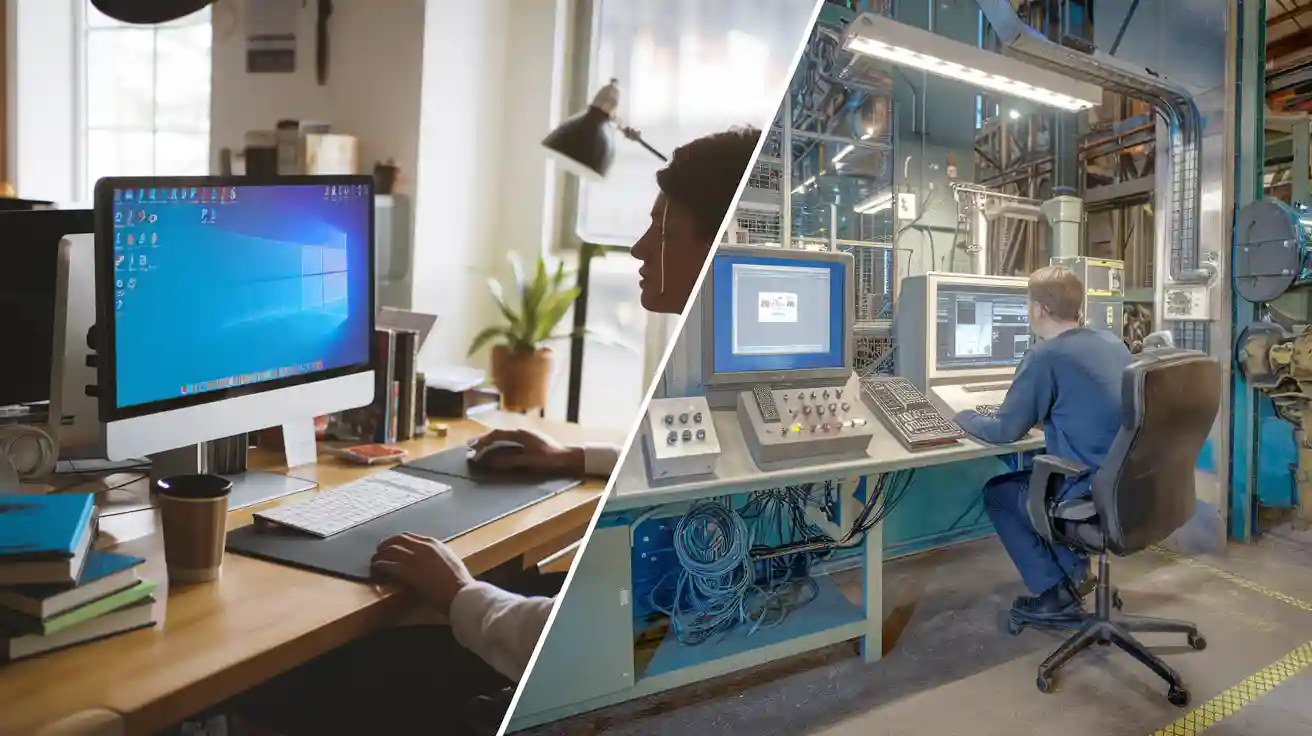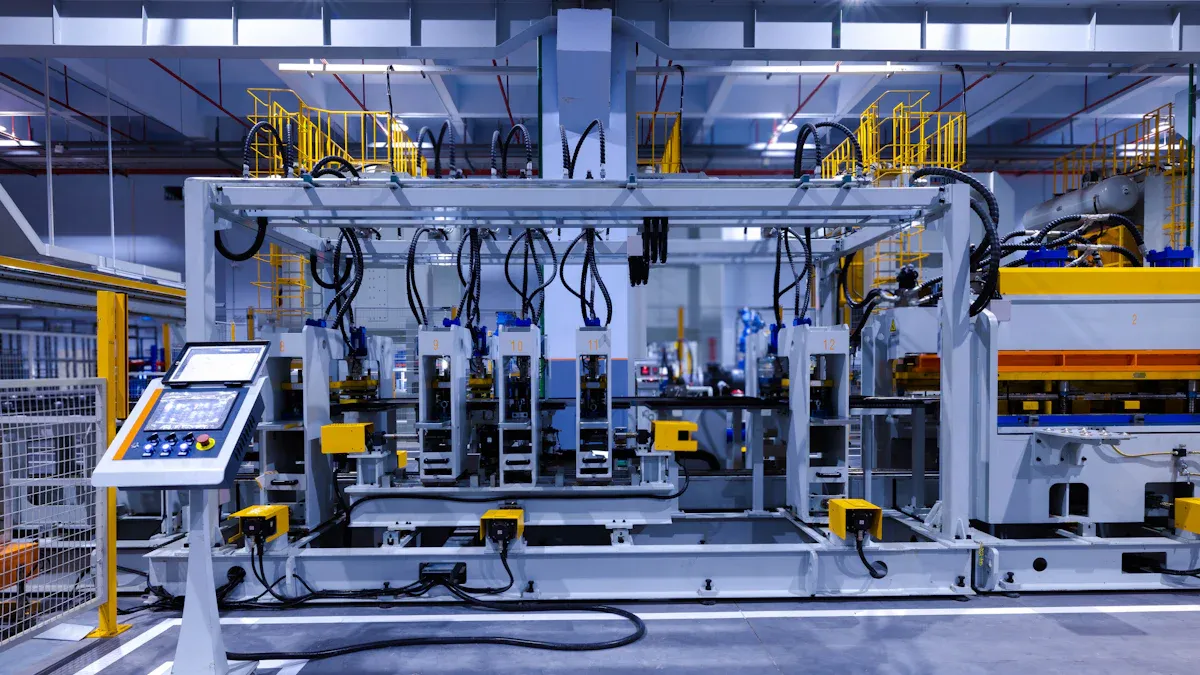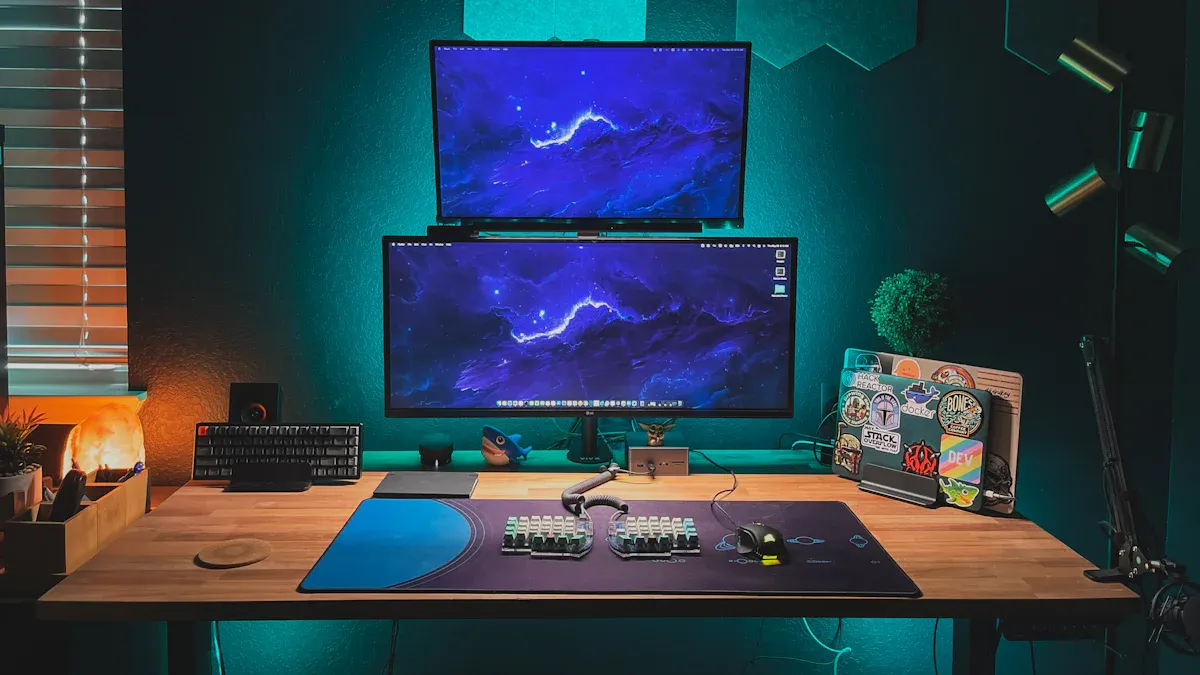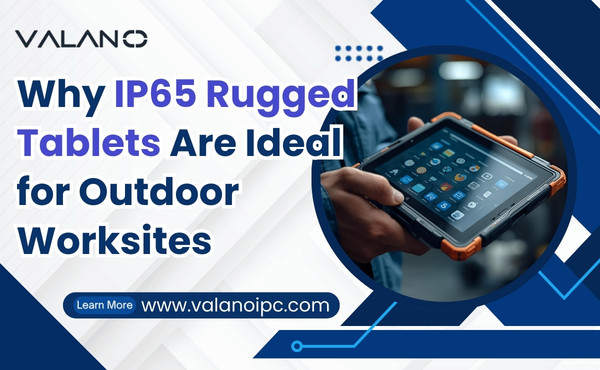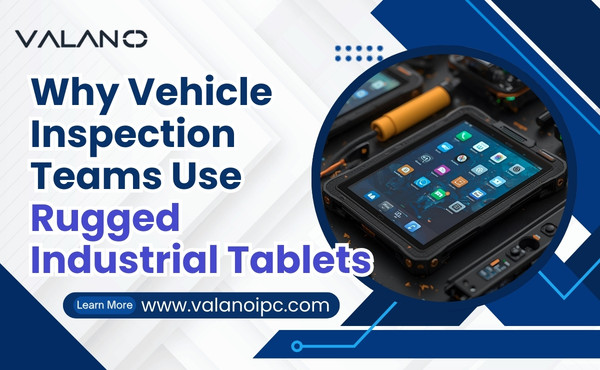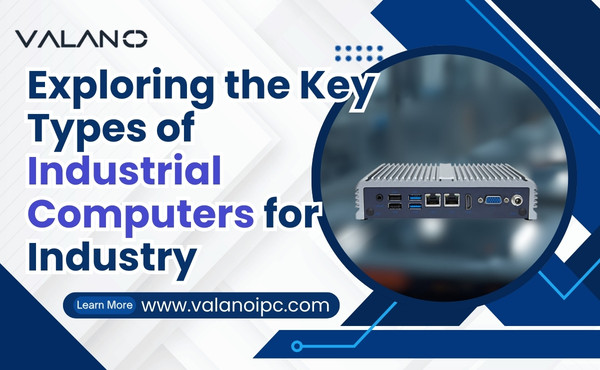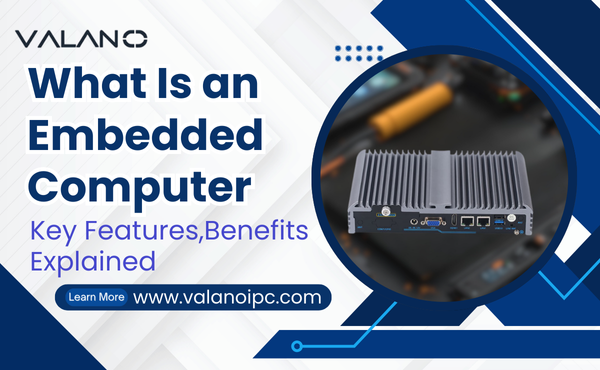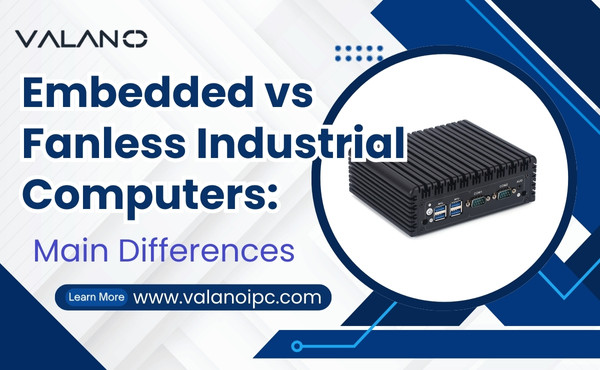A personal computer is good for daily work at home or in an office. An industrial computer is made for tough jobs in factories or rough places. These two types of pc are not the same in power, trustworthiness, and how they are built. People need to pick the right system because where it is used can change how well it works and how safe it is. Picking the right one stops problems and keeps important data safe.
What is a personal computer?
A personal computer is a machine people use at home or work. This type of pc can sit on a desk or in a small office. People sometimes call it a commercial computer because it works for both homes and businesses.
You can write papers, use the internet, and play games on a personal computer. Most commercial computers have simple programs and easy parts. People pick a personal computer for normal jobs that do not need extra safety or strength.
What is an industrial computer?
An industrial computer is made for hard jobs. This kind of commercial computer is used in factories, warehouses, or outside. It can handle dust, heat, cold, and shaking. Many companies use industrial computers to run machines or collect data in tough places.
Industrial computers have a strong case and special parts to keep working when things get rough. Unlike a normal commercial computer, an industrial computer lasts longer and needs fewer repairs. Some people call an industrial computer an industrial pc.
Key features of an indsutrial pc:
-
- Strong build for rough places
- Can run all day without stopping
- Handles extreme temperatures and dirt
Personal Computers vs. Industrial Computers: Explore the Differences
Design
Hardware and Components
A commercial computer has parts you see in homes or offices. These parts are a simple processor, normal memory, and a basic hard drive. You can upgrade the memory or storage easily. An industrial computer uses better parts for hard work.
The industrial computer has a stronger processor and memory that works in hot or cold places. Many companies pick an industrial computer because it keeps working when a commercial computer might stop.
| Feature | Commercial Computer | Industrial Computer |
|---|---|---|
| Processor | Standard | High-performance, rugged |
| Memory | Basic | Special, heat-resistant |
| Storage | Regular HDD/SSD | Shock-proof, industrial SSD |
| Expandability | Easy | Limited, but more durable |
Appearance and Build
A commercial computer looks nice and modern. It is made to match home or office furniture. The case is usually plastic or thin metal. An industrial computers looks very different.
The industrial computer has a thick metal case and strong seals. This keeps out dust, water, and bumps. Most industrial computer models do not have moving parts outside. The design is for safety and long use, not for looks.
- Commercial computer: Light, stylish, easy to move.
- Industrial computer: Heavy, tough, made to last.
Durability
Environmental Resistance
Industrial computers can work in dirty or wet places. Their strong cases keep out dust and water. They do not stop working in hot or cold weather. These machines can take bumps and shaking from big machines.
Personal computers do not have these strong protections. Most personal computers must stay in clean, dry rooms. If you use one in a factory, it might break fast.
Lifespan and Maintenance
Industrial computers last much longer than personal computers. Their parts do not wear out quickly. Many can run for years with no repairs. People use them all day with few problems.
Personal computers need more cleaning and care. They may need new parts sooner. When a personal computer breaks, it can take longer to fix. Industrial computers let you change parts fast and keep working.
- Personal computer: Short life, more repairs, needs a clean room.
- Industrial computer: Long life, fewer repairs, works in hard places.
Reliability
Uptime and Stability
Industrial computers work for a long time without stopping. They keep going even if things get rough around them. These computers have strong parts that do not break easily. Factories use them to keep machines running all day and night.
Personal computers are not as steady as industrial computers. They might freeze or stop if used too long or in bad places. Most personal computers need to rest or restart often. This can slow down important jobs.
| Feature | Personal Computer | Industrial Computer |
|---|---|---|
| Uptime | Moderate | Very High |
| Handles Power Surges | Rarely | Often |
| Runs 24/7 | Not Recommended | Designed For It |
Industrial computers use special software to check for problems. This software can fix small things before they get worse. Personal computers usually do not have these tools.
Security and Data Protection
Industrial computers keep data safe with extra steps. They use strong locks and codes to protect information. Many have firewalls and virus blockers built in. These things stop hackers and keep data private.
Personal computers have simple security. They might use passwords or basic antivirus. This is okay for home or office. In a factory, stronger safety is needed.
Industrial computers often save data in more than one place. If one part breaks, the data is still safe. Personal computers can lose data if the hard drive stops working.
- Industrial computer: Strong safety, backup systems, safe in hard places.
- Personal computer: Simple safety, fewer backups, best for safe rooms.
Applications
Personal computers
A personal computer is good for many things. People use it for homework and office jobs. It is also used for surfing the web. Many families use a personal computer for emails and video calls.
They also watch movies on it. Students write reports and make slideshows on these computers. Small businesses use them to plan and keep records.
People use these computers for easy photo editing and simple games. They can connect printers and cameras without trouble. Most homes and offices pick a personal computer because it is easy to use.
Industrial computers
Industrial applications need computers that are strong and reliable. An industrial computer runs machines in factories and checks sensors fast. Many companies use these computers for industrial applications like watching over production lines. They help track things like temperature and speed in tough places.
Industrial applications often need computers to work all day and night. These computers control robots and conveyor belts. They also run safety systems. In industrial applications, the computer must keep working during power surges or shaking. Some industrial applications are running traffic lights, water plants, and energy grids.
A table below shows some examples:
| Use Case | Personal Computer | Industrial Computer |
|---|---|---|
| Office Work | Yes | No |
| Factory Automation | No | Yes |
| Data Collection in Plants | No | Yes |
| Home Entertainment | Yes | No |
| Machine Control | No | Yes |
Personal Computers vs. Industrial Computers: Which One to Choose
Factors to Consider
Choosing the right computer means thinking about a few things. You need to know where you will use it and what jobs it must do. You also have to think about how much you can trust it.
- Work Environment: Some computers are best for clean, quiet rooms. Others must work with dust, heat, or shaking.
- Performance Needs: Hard jobs like machine control need more power. Easy jobs like typing or web surfing need less.
- Durability: Industrial computers last longer in tough places. Personal computers are better for safe, indoor spots.
- Maintenance: Some computers need lots of care. Others can run for years with little help.
- Budget: Industrial computers cost more at first but save money later. Personal computers are cheaper to buy.
| Factor | Personal Computer | Industrial Computer |
|---|---|---|
| Cost | Lower | Higher |
| Lifespan | Shorter | Longer |
| Upgrades | Easier | Limited |
| Protection | Basic | Advanced |
Matching Needs to Environment
You should choose a computer that fits the place it will be used. A personal computer is good for homes or offices. An industrial computer is better for factories, warehouses, or outside.
If there is dust, water, or shaking, use an industrial computer. For easy jobs in Conla safe room, a personal computer is fine.
Conclusion
Personal computers work well for daily tasks in clean and safe places like homes or offices. They focus on being easy to use and affordable. Industrial computers are made tough to handle dust, heat, and shaking. They last longer and keep running without stopping.
These differences show how each type is built for different needs and environments, without mixing their roles.

